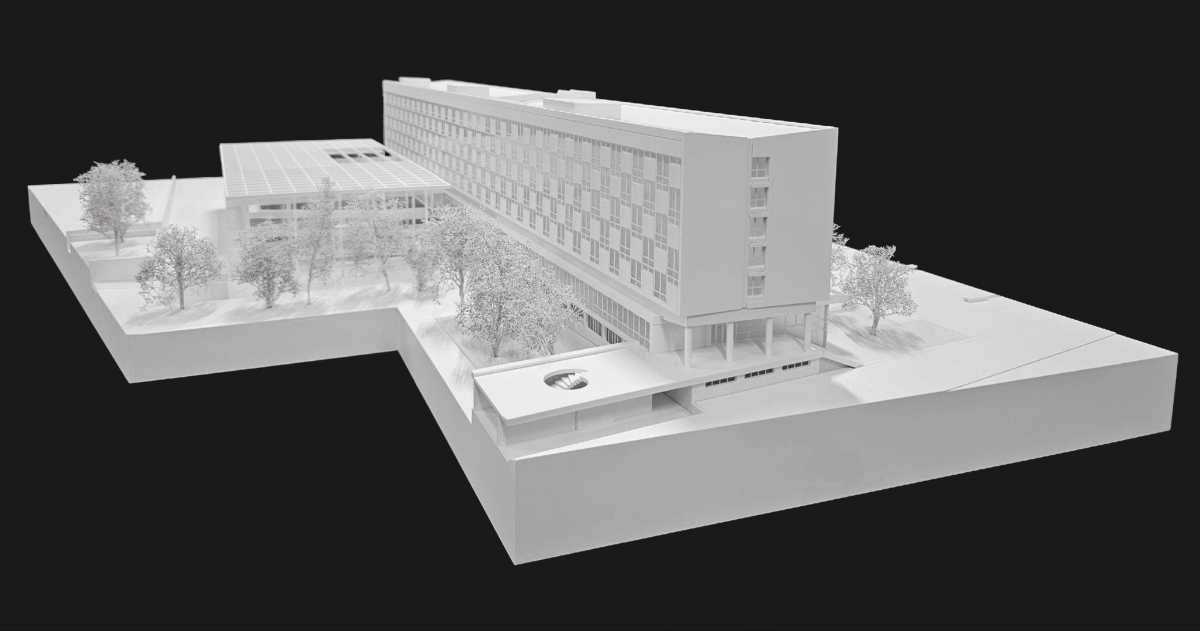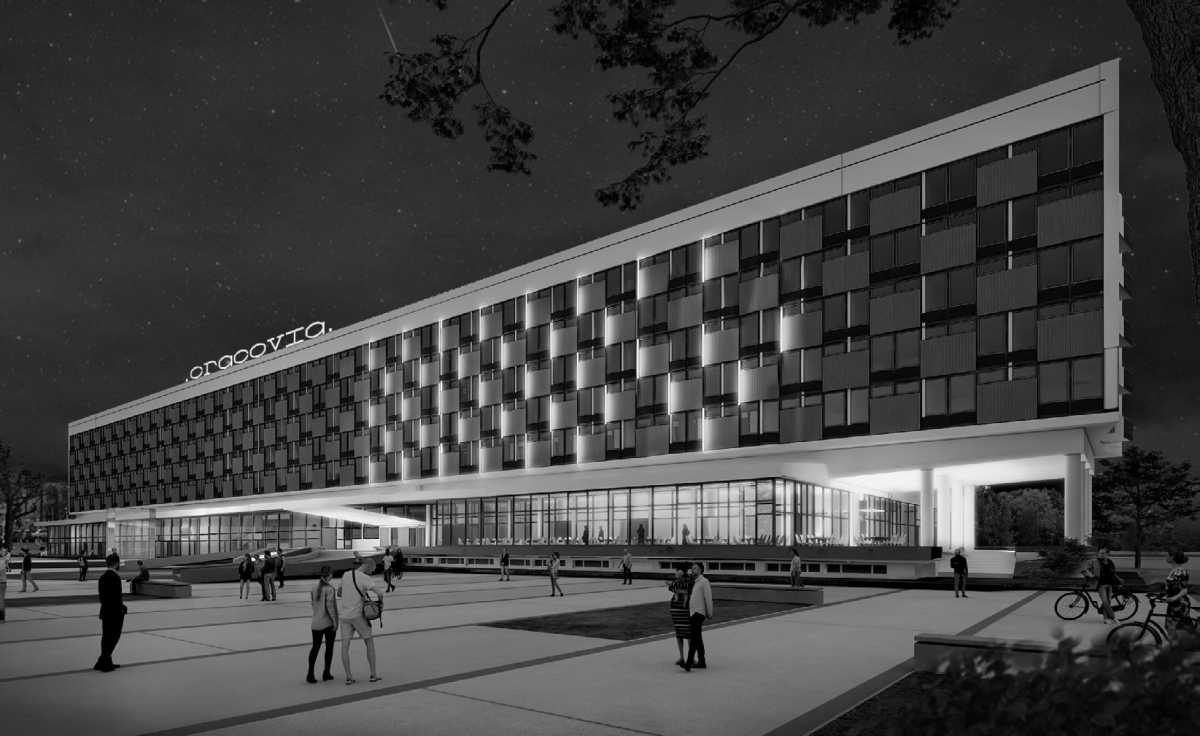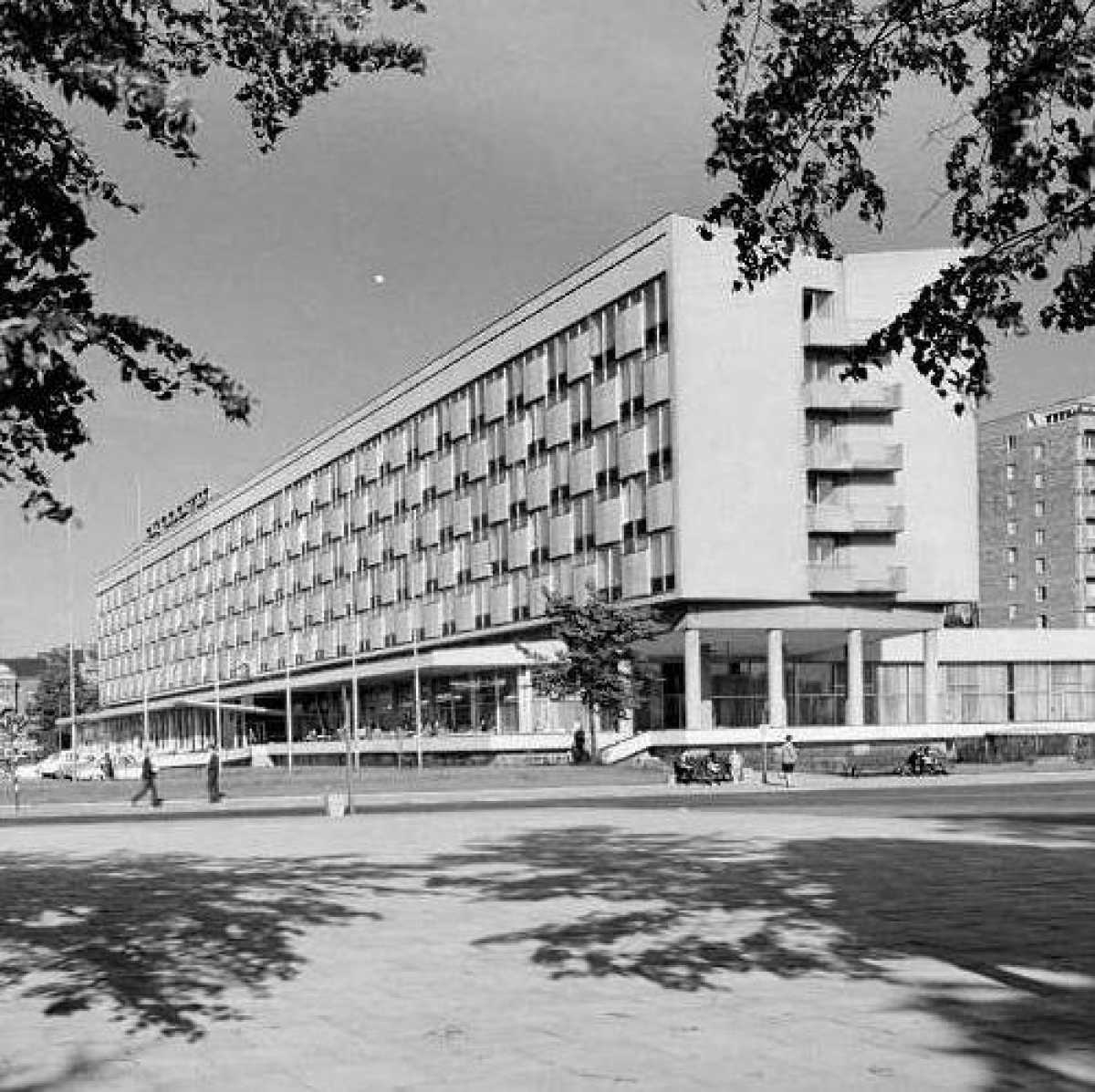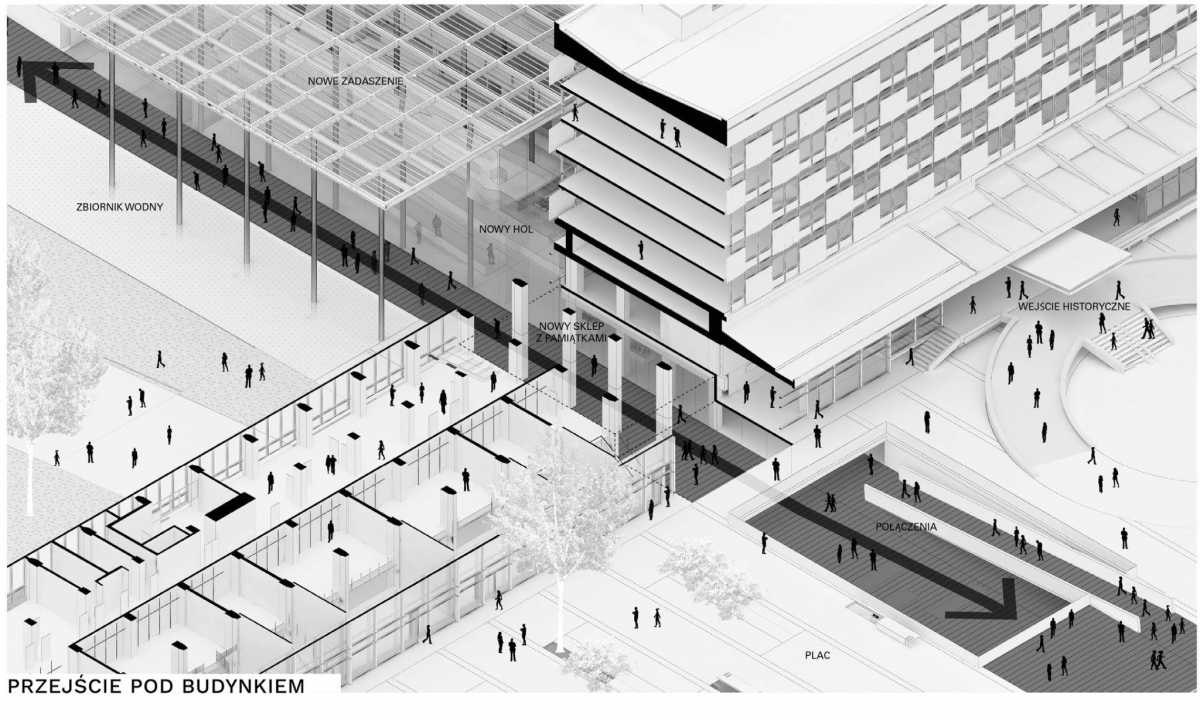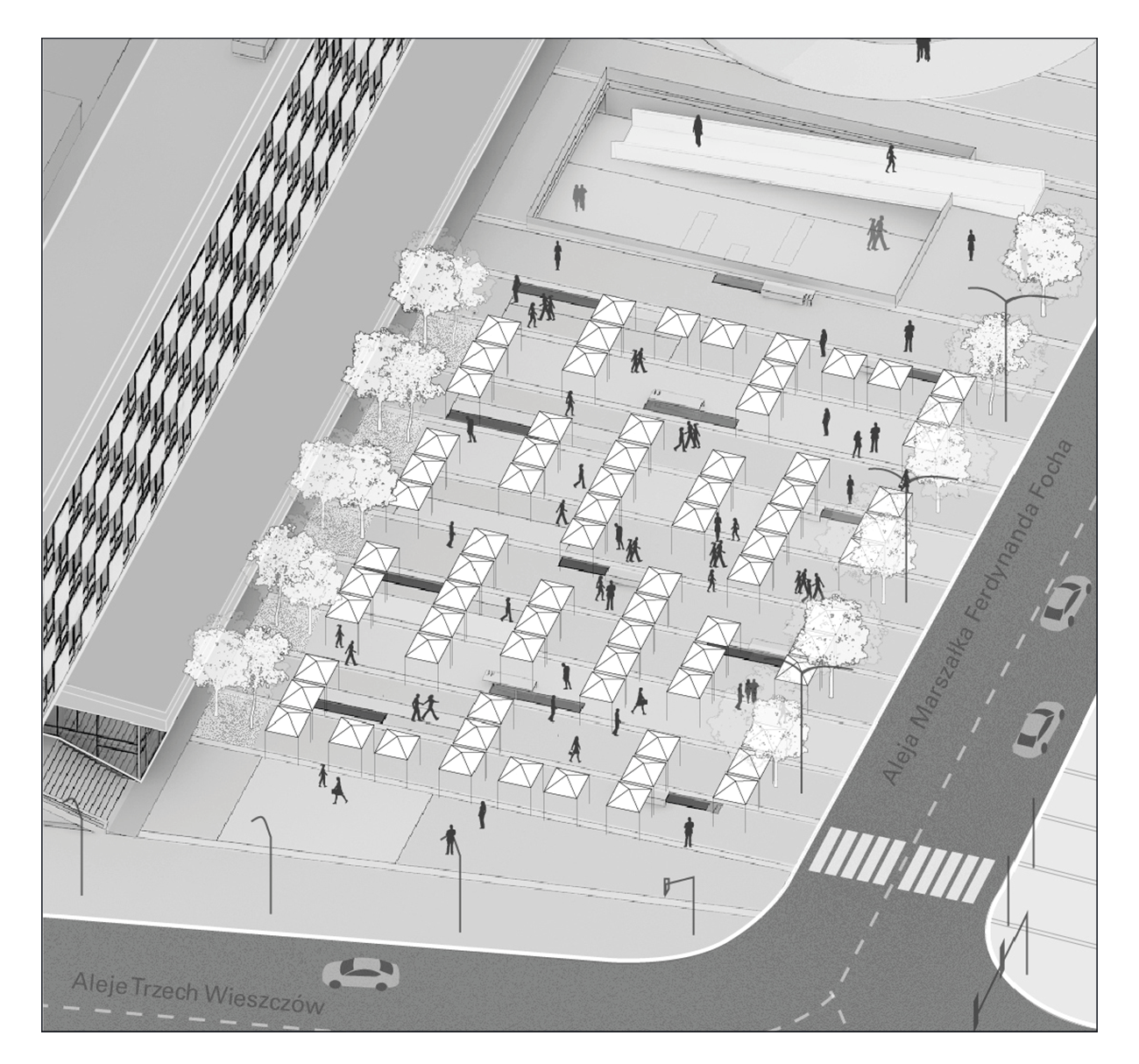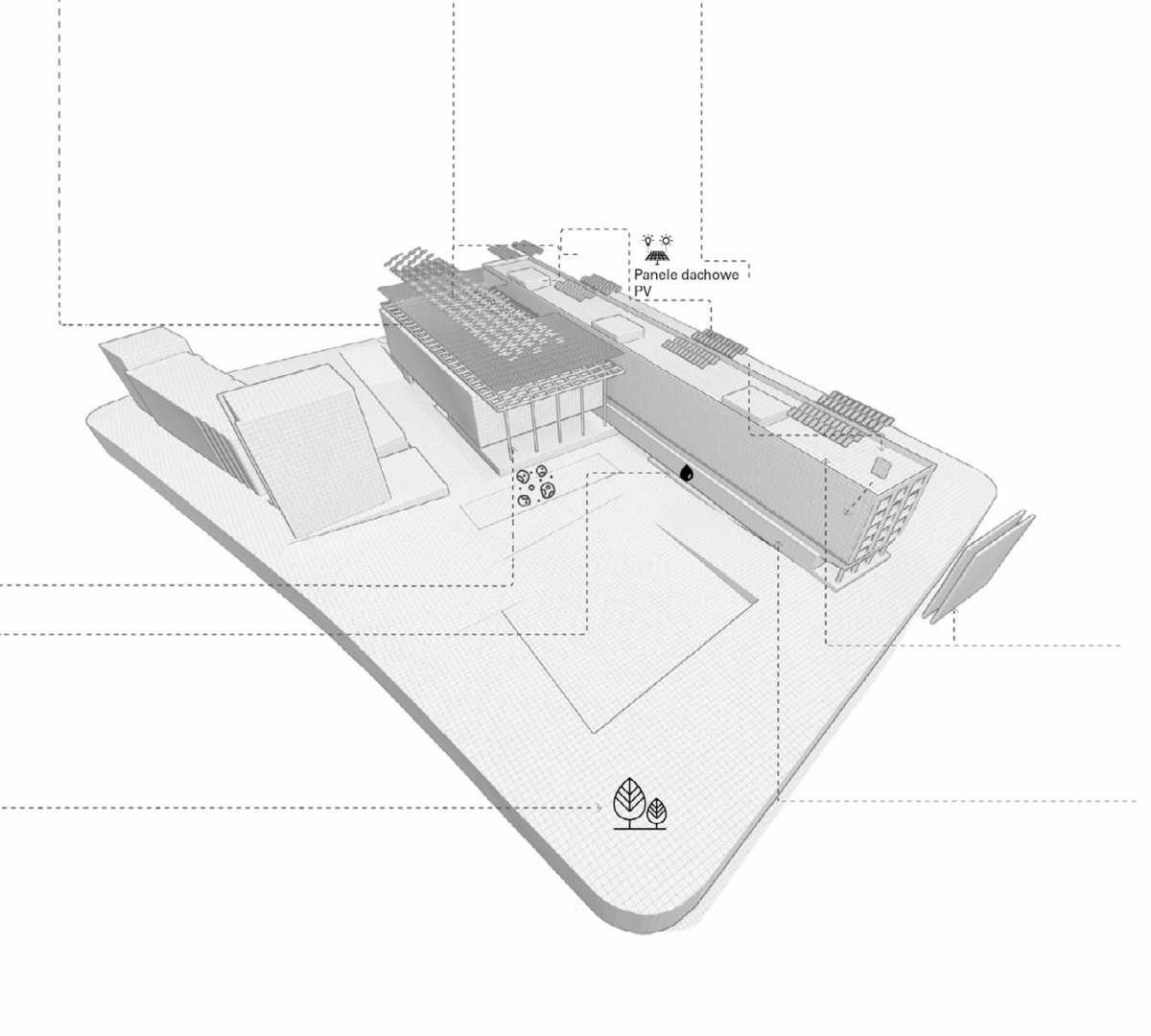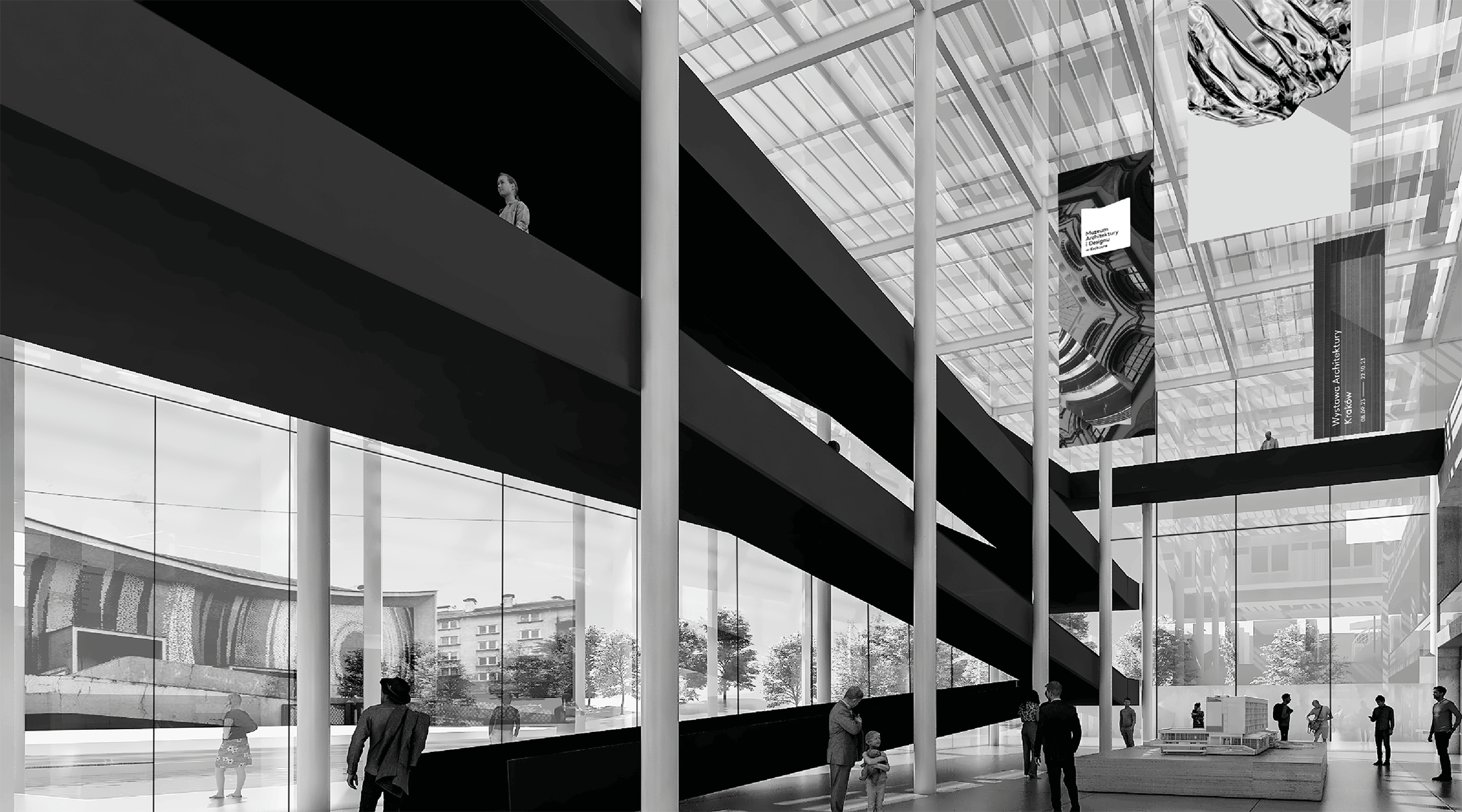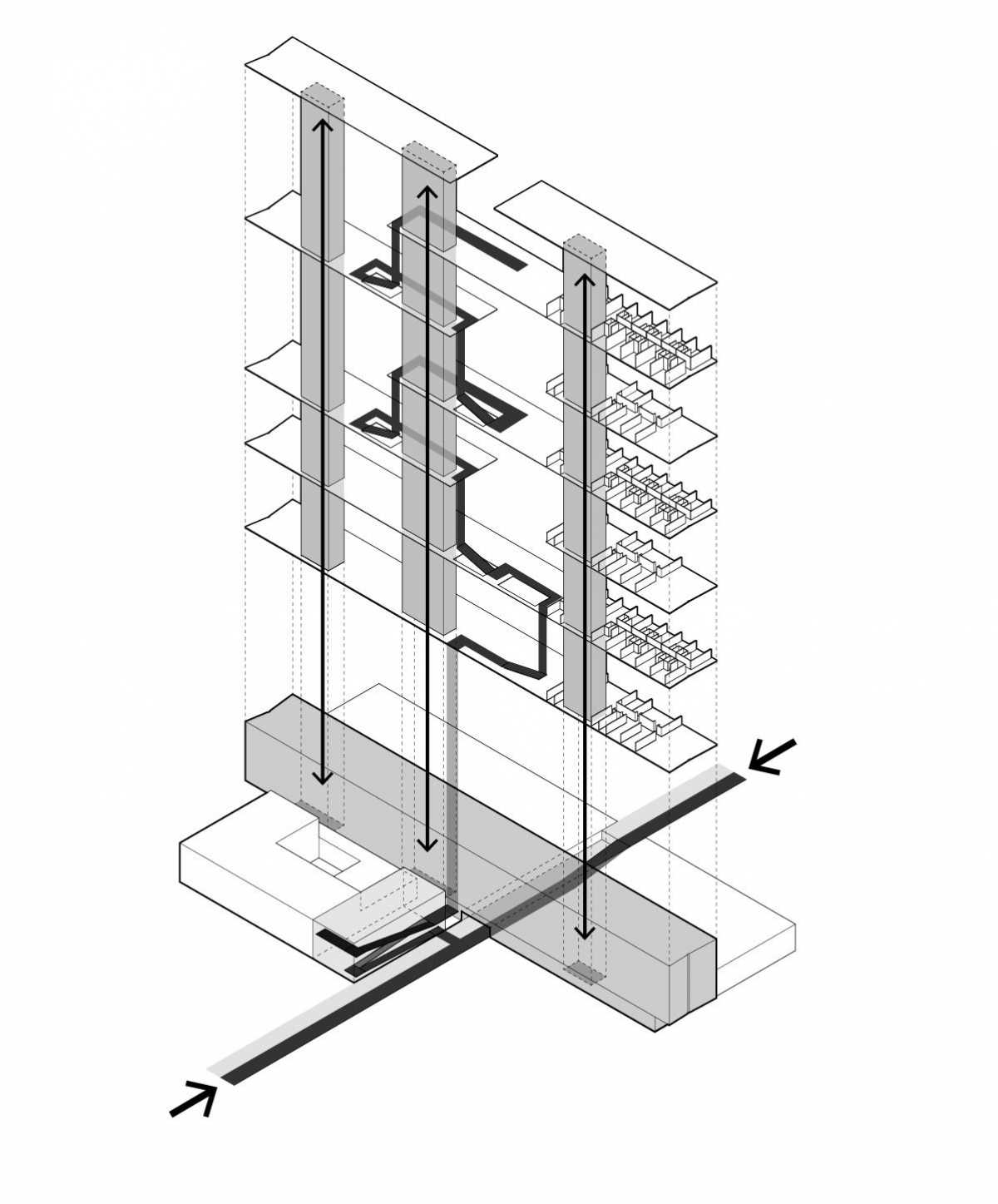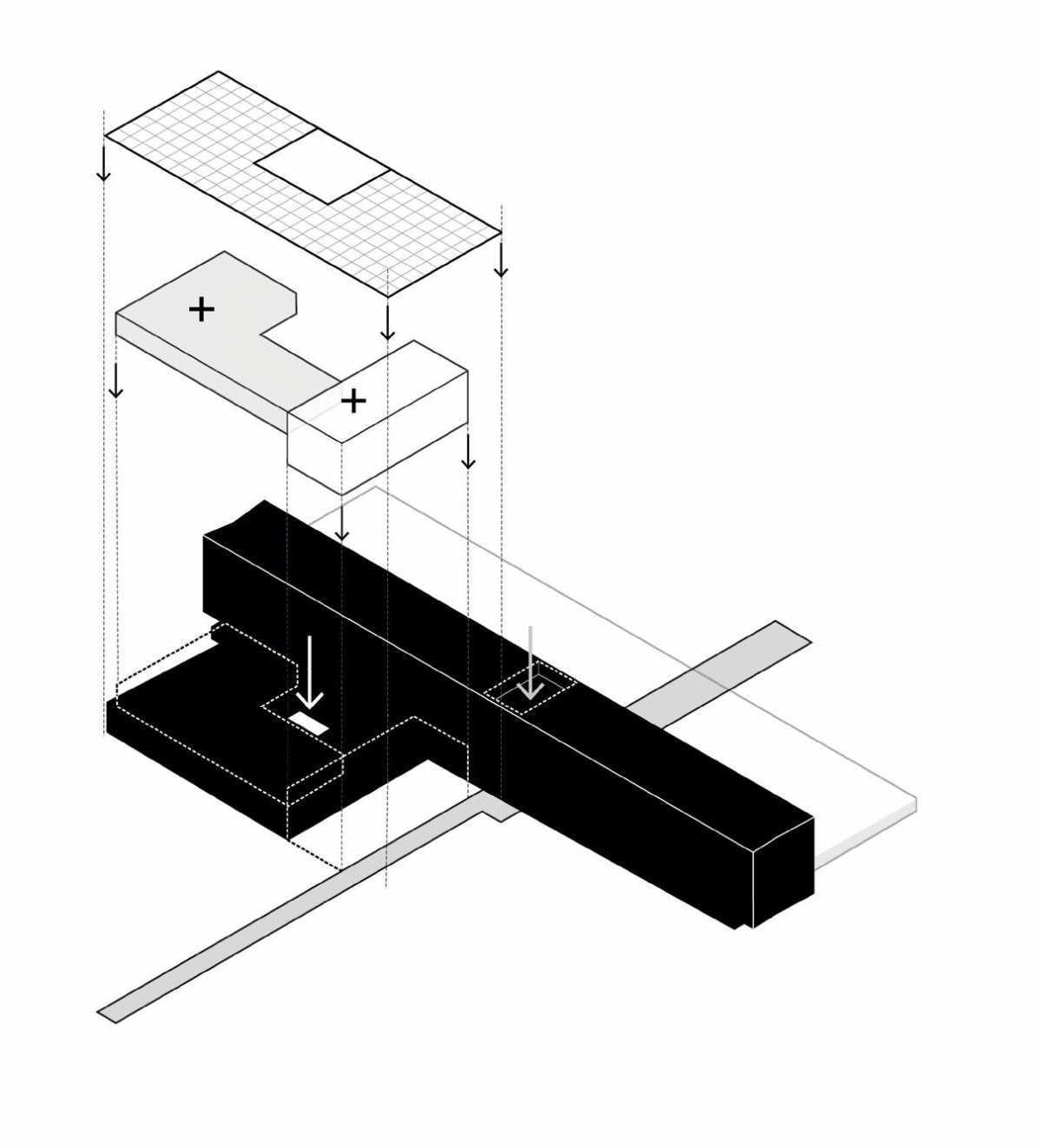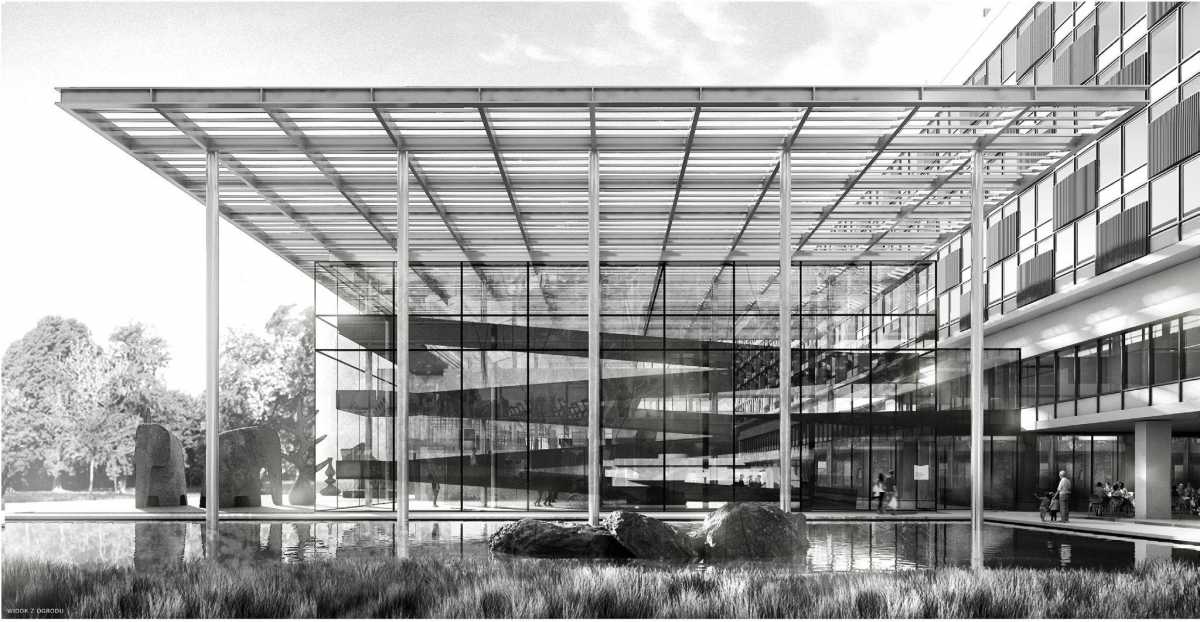Transforming the Abandoned Hotel Cracovia into a Civic Landmark
Studio Woodroffe Papa, along with Gomez Platero, Wojciech Fudala and Justyna Boduch, was awarded the 4th prize in the international competition to transform the modernist building of the former Hotel “Cracovia” into the new branch of the National Museum in Krakow. The building will house architectural and design ideas of the 20th and 21st centuries.
There were two key ideas guiding the project. Firstly, respect for the existing heritage. The reconversion seeks to highlight the architectural value of the existing building and prioritise its historical and cultural qualities, understanding that the building forms part of the collective memory and identity of the city’s inhabitants. Secondly, to promote urban integration. The pre-existing building is part of an important urban axis linking the National Museum of Poland, the Kiev Cinema, a nearby park and a new garden. The main challenge in connecting the old hotel with the urban axis was to modify the relationship of the hotel with its surroundings: from an introverted character to an extroverted civic building that opens to the city.
The project proposed the construction of a new wing that re signifies the back of the project while respecting the building’s identity. A new ramp system is incorporated to ensure full accessibility and connect the interior promenade to the wider urban network. In line with the “New European Bauhaus” initiative, the design emphasises making spaces more human-friendly, guided by the values of beauty, sustainable development and community. Additional space is proposed for artists and creatives to re-inhabit the hotel, reconverting old hotel rooms into a new type of inhabitation linked to the creative industries, shifting the focus from being a static exhibition space to a living and dynamic institution.
In essence, the aim of the project is to breathe new life into a culturally significant building, taking advantage of modern building technologies. It retains the charm of the old, reducing its carbon footprint while introducing cutting-edge technologies to ensure efficient preservation, social interaction, efficiency and energy generation. This project is a testament to innovation and the future rooted in Krakow’s rich history.
- Hotel Cracovia
- PL, Krakow
- Client
- National Museum in Krakow
- Programme
- Museum\
Site area: \
Workscope: Design\
Status: Competition\
Team: Studio Woodroffe Papa, Gomez Platero, Wojciech Fudala and Justyna Boduch
Transforming the Abandoned Hotel Cracovia into a Civic Landmark
